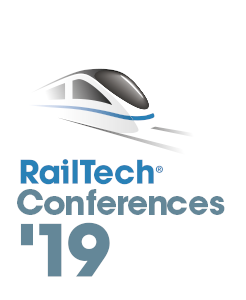 Péter Rónai
Péter Rónai
Head of Directorate for Infrastructure Services at the Hungarian State Railways Co.
Presentation title:
Traction energy accounting powered by the Hungarian State Railways Co.
Summary:
According to the Hungarian Railway Act and the published Network Statement, the Hungarian State Railways Co. (MÁV Co.) provides the traction energy as an additional service for all Railway Undertakings. The consumed traction energy can be calculated either by using pre-defined coefficient values or, from 1st of January 2016, using the metered energy in the accounting process.
MÁV Co. has started a new project in order to implement a totally new approach in the accounting methodology. The aim of this project is to give the possibility of metering method in order to encourage the Railway Undertakings for a more efficient train drive. The benefit of the metered data based calculation is to get detailed information about the real consumption of the trains (e.g. determination of unproductive energy, consumption information between stations or section by section) an a minute basis.
Choosing this new technique in the traction energy accounting opens a lot of new possibilities to reduce energy consumption of the trains on behalf of Railway Undertakings and, consequently, it greatly decreases air pollution. We are planning to add a new function to detect the green energy (i.e. electric energy from renewable sources) within the total consumed energy train by train, which can strongly facilitate to increase the “green image” of the entire railway sector in Hungary. Furthermore, the indication of the “useless” consumption by keeping locomotives up and running on stations gives a possibility to detect “points of losses” with a potential to harmonise operational behaviour of loco drivers and dispatchers.
MÁV Co.’s goal with the continuous IT developments is to strongly support the Railway Undertakings in order to be aware of energy efficiency decisions and the forecasted results.
We believe that MÁV Co.’s new project, the collaboration and information exchange with all relevant parties really helps to reach the best practice in this field and finally to reduce the consumption of the trains to the minimum level, which is necessary to take a small step ahead towards the sustainable economy of the European Union.
Speaker biography:
Dr. Peter RONAI is the head of Directorate for Infrastructure Services at the Hungarian State Railways Co. (MAV) at the Infrastructure Management Business Unit. He has an MSc degree in transport engineering and in corporate economics. He defended his Ph. D. thesis in transport sciences in 2003. His main tasks are joined to the accounting of the infrastructure access charges along the network of the Hungarian State Railways. In EU-founded scientific projects he worked as an expert for cost calculation schemes and cost modelling.
